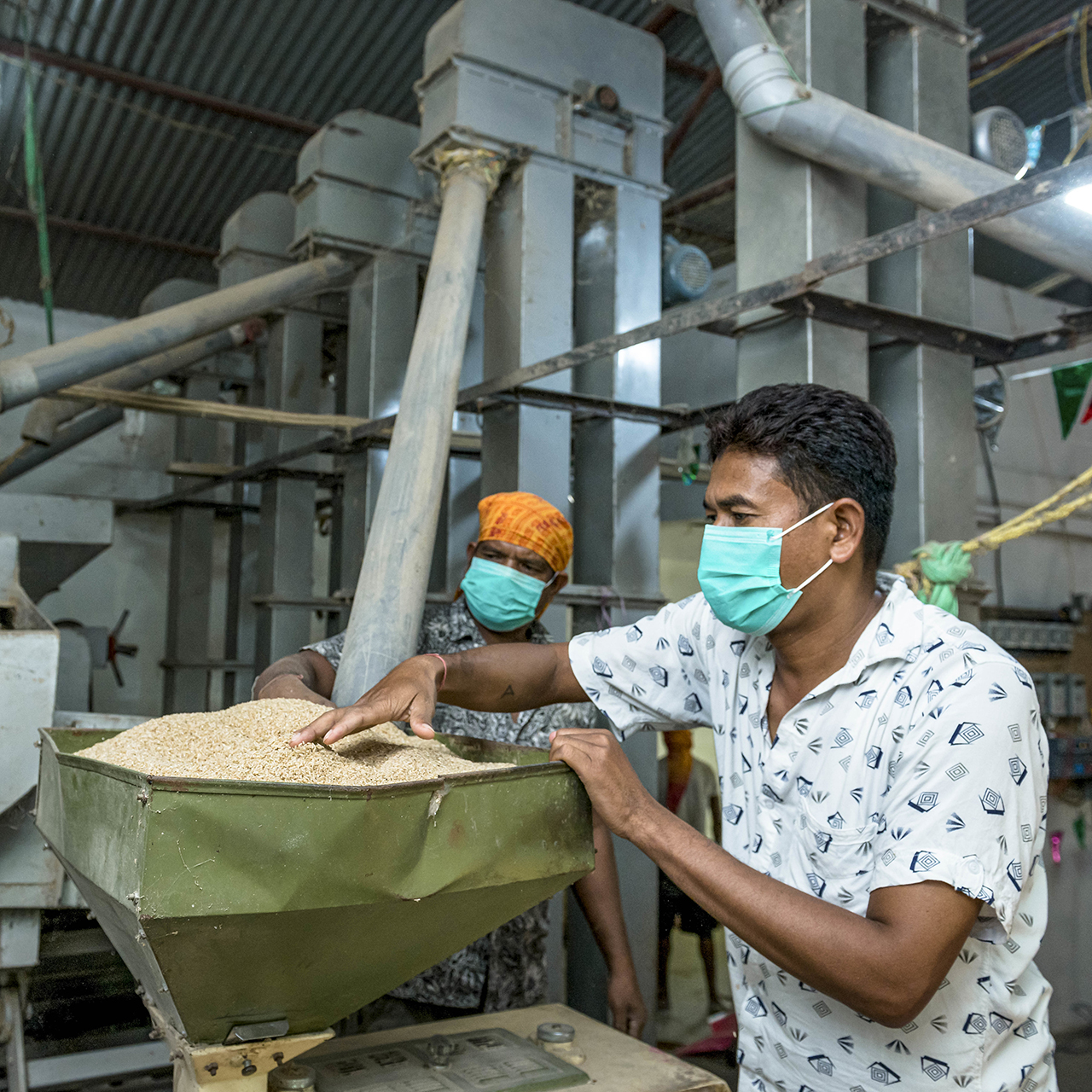
Food processing is at the center of food supply and demand. Nearly all food consumed, whether in low- or high-income countries, rural or urban areas, is processed in some way to allow for the availability and affordability of safe, nutritious foods year-round. Food processing ranges from simple techniques used by individuals to large-scale industry operations that involve cutting-edge science and technology. USAID and its partners are involved in an array of food processing activities from large scale food fortification to activities involving small and medium-sized enterprises (SMEs) in smaller-scale processing activities.
Recognizing the important role food processing can play in delivering safe, nutritious foods, USAID Advancing Nutrition worked with USAID in 2019 to produce a landscape assessment report that helped USAID to better understand the breadth of food processing activities in Feed the Future programming and recommended ways to improve food processing programming for better nutrition.
Informed by the 2019 landscape assessment, USAID Advancing Nutrition identified opportunities to strengthen USAID food processing activities to better contribute to improving diets as part of a Food Processing for Improved Diets Brief. The brief is guided by USAID’s multi-sectoral food security and nutrition strategies with a focus on the RFS Conceptual Framework, showing food processing sitting within the center of the framework as a component of food supply and demand.
Considering the opportunities and challenges from a programming perspective, the brief discusses the different ways food processing can contribute to improved diet and nutrition outcomes and key considerations for implementation. Sub-sections include descriptions of the types of activities that show promise with different stakeholders including government partners and development partners; resilience and food processing in the context of food system shocks and stressors; long-term sustainability; and a systems approach that mitigates against unintended negative consequences.
The relationship between food processing and diets can be complex, but through a food systems approach that is considerate of the many actors, processes, and perspectives involved, food processing activities can positively influence diets and nutrition. The goal for this brief is to inform and inspire conversation around food processing activities for improved diets towards stronger program design and effective collaboration with food processors.